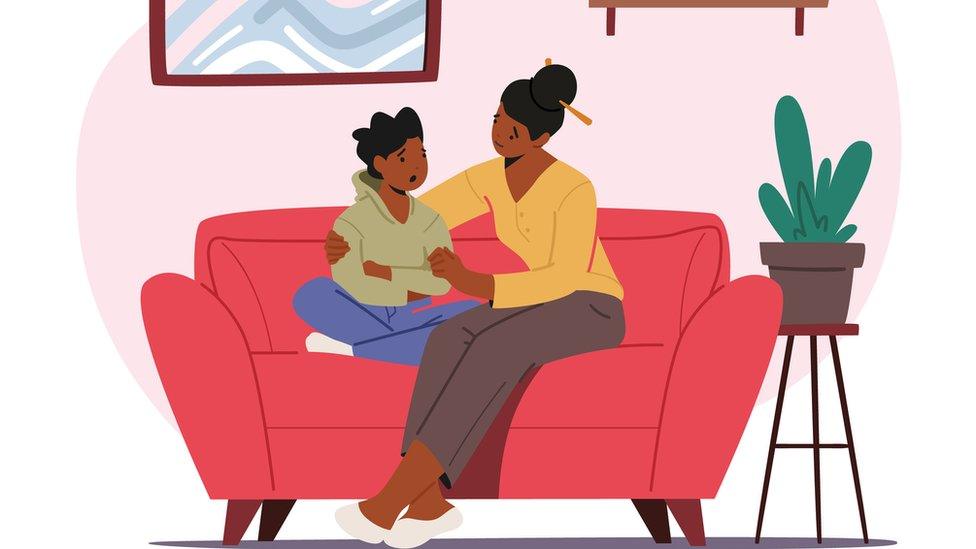Cost of living: Girls worried about being able to afford period products
- Published
- comments

One in five girls are worried about having enough money for things like food and period products.
That's according to the annual Girlguiding attitude survey which asks girls and young women how they feel about their lives.
The UK charity spoke to 2,600 people aged between seven and 21 for the research.
Read on to find out what we know from the survey so far.
Newsround Special: Kids in a cost of living crisis
What are the early findings of the survey?
One in three girls (around 66%) aged between seven and 10 said they try not to ask their parents for pocket money or to go on school trips.
40% of all girls (aged seven to 21) said they have heard their parents or carers talk about the need to cut back on certain things to save money.
21% of girls aged seven to 21 said they worry about their family not having enough food.
The same percentage of the girls surveyed said they were worried about not having enough money for period products or period pain medication.
Girlguiding chief executive Angela Salt said young girls should be "looking to the future with hope and excitement" and she is concerned about "the mental toll the cost-of-living crisis is having on girls in the UK."
Ricky finds out more about the cost of living crisis

Girls from more deprived areas of the UK were more likely to be worried about their family not having enough food to eat.
The survey also suggests girls aged 11 to 21 are spending less on things they enjoy with around 43% saying they avoid things like travel, books and leisure activities due to money concerns.
The survey results suggested this is more likely to be the case for disabled girls - 60% compared with 40% of girls who are not disabled.

The full research - due to be released in September - will explore the issues faced by girls now and how their lives have changed since the first annual survey in 2009.
You can read advice here if you're worried about the cost of living.
- Published8 March 2021

- Published14 April 2023

- Published29 June 2023

